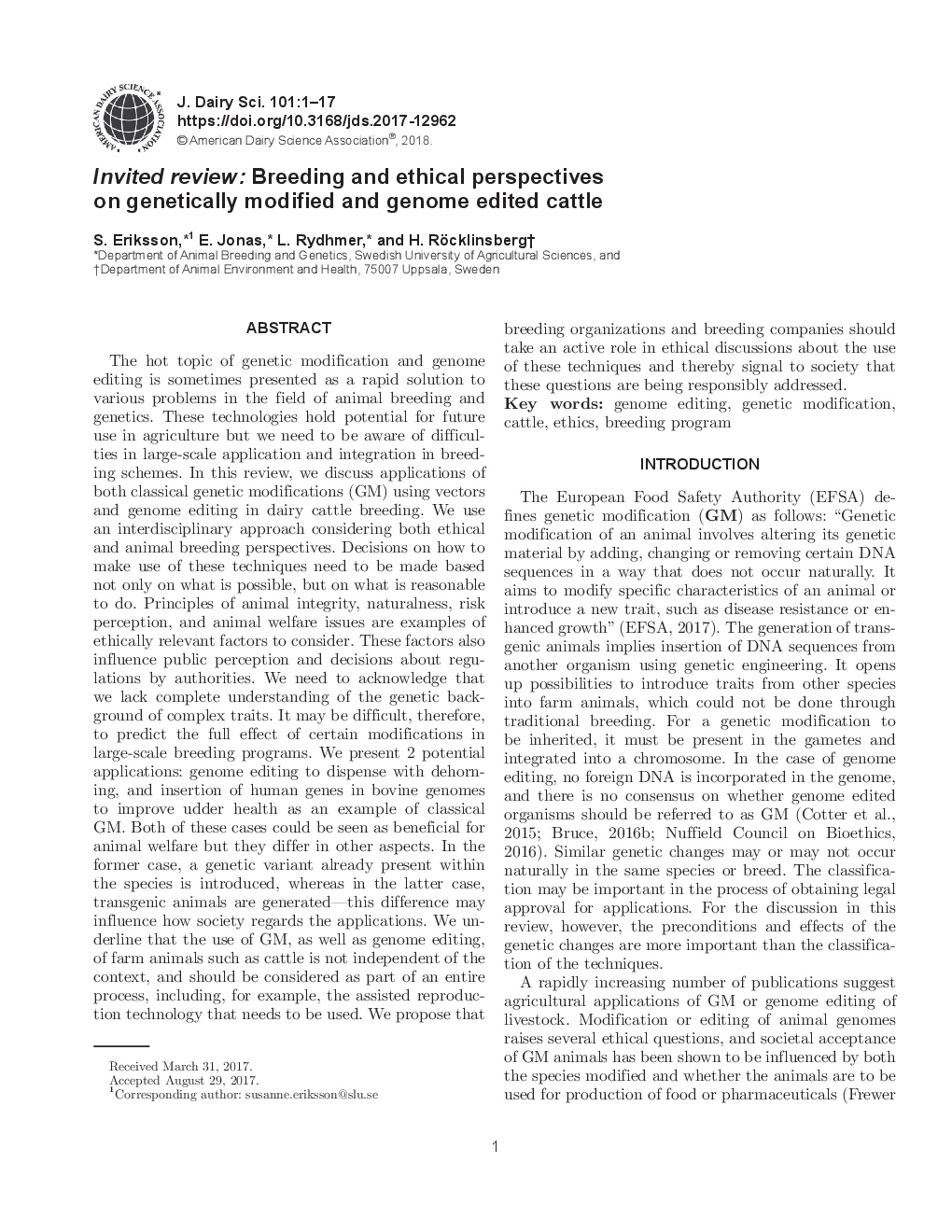ترجمه فارسی عنوان مقاله
بررسی دعوت شده: اصلاح نژاد و دیدگاه های اخلاقی در گاوهای اصلاح شده ژنتیکی و ژنوم
عنوان انگلیسی
Invited review: Breeding and ethical perspectives on genetically modified and genome edited cattle
| کد مقاله | سال انتشار | تعداد صفحات مقاله انگلیسی |
|---|---|---|
| 151523 | 2018 | 17 صفحه PDF |
منبع

Publisher : Elsevier - Science Direct (الزویر - ساینس دایرکت)
Journal : Journal of Dairy Science, Volume 101, Issue 1, January 2018, Pages 1-17
ترجمه کلمات کلیدی
ویرایش ژنوم، اصلاح ژنتیکی، گاو اخلاق، برنامه پرورش،
کلمات کلیدی انگلیسی
genome editing; genetic modification; cattle; ethics; breeding program;

